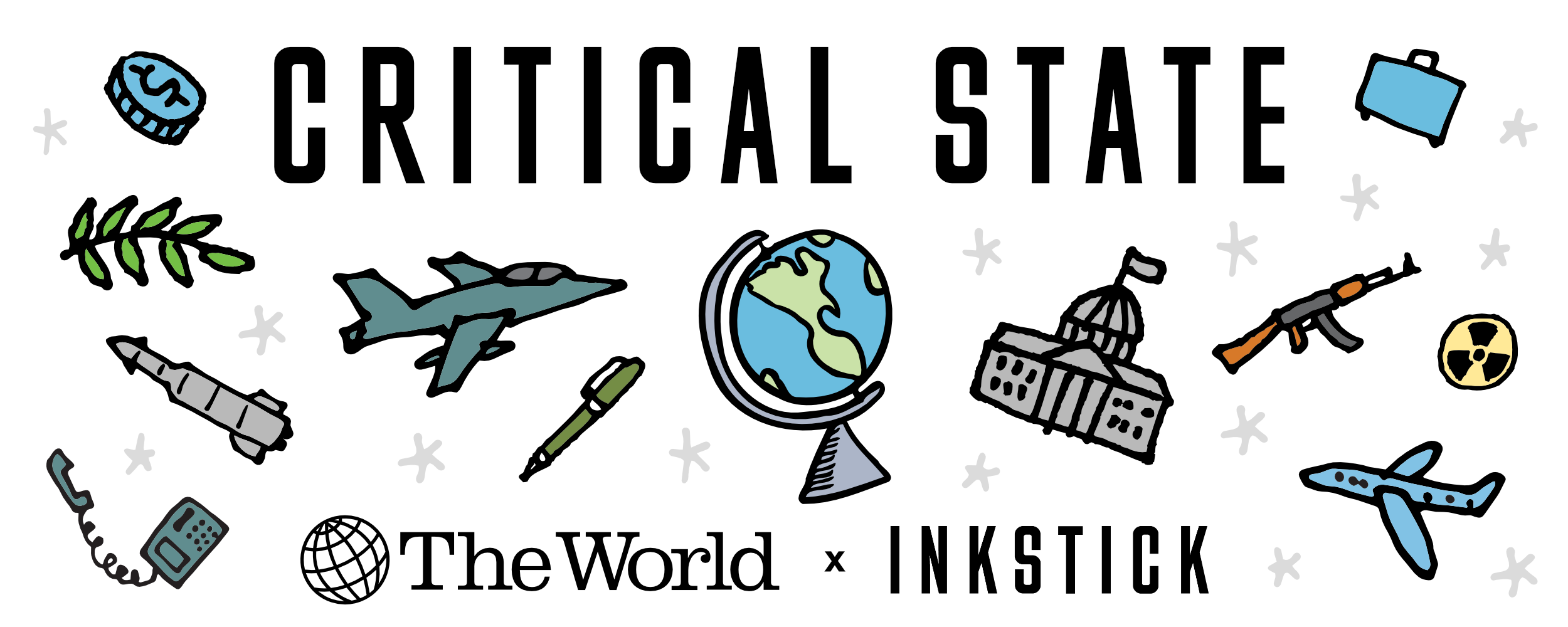|
Critical State: Romanian Rumble
If you read just one thing … read about Romania’s unexpected election developments!
As Grigore Pop-Eleches puts it in Good Authority, “Even in a year when we’ve come to expect electoral surprises from resurgent nationalist populists, the bizarre results of the first round of the Romanian presidential elections, which took place last weekend, stand out.”
What happened? “The unexpected winner of the first round, Călin Georgescu, is a dark horse pro-Russian candidate with odd Putin copycat tendencies. Pre-electoral surveys largely missed his political rise and — even more surprisingly — all the exit polls underestimated his support.”
Some analysts worried ahead of time that a crowded field would split centrist support. Still, “Given his image as an obscure outsider who largely campaigned on TikTok and barely broke into the double digits in any of the pre-electoral surveys, Georgescu’s last-minute surge surprised the betting markets as well as political analysts.” And while diaspora voters, not included in pre-elections surveys, explains it to an extent, it isn’t a full explanation. Also important? TikTok and influencers, who fueled his late surge: “Starting on Friday, Nov. 21, when early voting in the diaspora began, multiple posts showed pictures of ballots with votes for Georgescu, which may have boosted his image as the most viable protest vote candidate.”
The runoff is due on Dec. 8.
If You Read One More Thing: Major Minor Matters
In The Dial, Will Coldwell writes about how minors are being put at risk by medical exams for asylum seekers.
As Coldwell explains, “Across Europe, border authorities frequently turn to medical assessments to determine the age of asylum seekers when their legal documents are missing or not considered valid. Authorities say the assessments are designed to ensure that an asylum seeker receives appropriate care and protection, and the outcome determines whether they will be treated as a minor or as an adult.”
Activists and lawyers, however, say that these exams can only provide a best guess, and that “these methods draw primarily on research based on historic datasets of American and European children that are not representative of today’s asylum seekers. In many cases, the margin of error is two years. Considering that around 76% of unaccompanied minors who arrive in Europe are aged between 15-17, that imprecision can carry a major toll.” And minors who are misidentified often struggle in their efforts to challenge the test results.
Building Brains
 |
Thomas Moynihan, a writer and a visiting researcher at Cambridge University’s Center for the Study of Existential Risk, asks in Noema whether humans might accidentally be building an artificial world brain.
Moynihan presents “the story of how a century ago, forgotten voices foresaw the present dawning age of synthetic intelligence: envisaging futures wherein humans might cede their role as the apex cogitator and become subsumed within budding systems of nonhuman cunning.”
But Moynihan ties it to the present: “As our climate deteriorates and geopolitical stability crumbles, there have been renewed calls for planetary coordination and control, whether through geoengineering or governance. We live in an era when pathogens and emissions make a mockery of national borders, when consequences cascade and harms are no longer solely local. Accordingly, disquieting questions arise again: Can liberty survive in an age of planetary risk? What might agency look like in the era of thinking machines?” Moynihan feels that visiting some of the past’s “stranger tomorrows” might help us make better sense of our present — and its possible futures.
Deep Dive: Women Who Wine
Julie McIntyre turns her attention to women in the Australian wine industry in a new article at the Asia-Pacific Economic History Review. The article “draws upon a large-scale oral history project (Treading Out the Vintage 2000–2003) to make visible women as industry decision-makers between the 1960s and 1990s.”
McIntyre took interest in international business scholar Ann Matasar’s point that no other industry “so resolutely excluded women from positions of influence for so long.” By contrast, McIntrye found a more nuanced picture: “With family farming as the main entry point to the Australian industry, few women became decision-makers in this era, compared with women in urban sectors of the economy that benefited from gains in gender equality.”
The rise of the Australian wine industry coincided with increasing women’s rights: Australian wine production and trade was finally economically significant to the country in the 1990s, a development made possible by a critical mass of non-premium white wine beginning in the 1960s. A decade later, white women in Australia “gained increased access to higher education, childcare, and other support to join the paid workforce.” Nevertheless, “by the early 2000s Australian wine industry women — such as Brady — along with their peers worldwide, had not benefited as proportionally as did women in other sectors of the economy.”
But McIntyre, looking at her own article’s data set, reflects that “[m]ost of the women in this article's data set were family farmers. Family farming in Australia has been historically conservative in attitudes to women's participation in decision-making.”
Specifically, four of the 18 interviewees were daughters whose fathers worked in the wine industry, 11 had married men who work in the industry, and another's male cousin constituted the link with the sector. Fathers and husbands provided the main avenues through which women gained access to industry participation.”
Elsewhere, McIntyre observes, “For women without access to formal industry education to be involved in wine production, they had to have people — typically husbands and fathers — willing to teach and support them on the job.”
Rural backgrounds limited the avenues for professional advancement that white women in the wine industry had access to in a way that women working in urban economic sectors did not experience. And motherhood — and their work and roles on the farms where they lived and worked with their families — further limited what they could do.
McIntyre also looks at the ways women in the industry worked around conservative or even sexist attitudes and norms, writing, “Female strategies to achieve and sustain industry participation included a willingness to subsume femininity by leaning into the male expectation of female timidity.”
McIntrye acknowledges that the work she draws from treats gender as a binary, and that future research could and should consider a non-binary approach. Further, although McIntyre mentions Indigenous women, she mostly focuses on white women. Expanding this focus to include more diversity could also benefit future research.
Show Us the Receipts
Ramoni Wadi predicts that things will be grimmer than ever for Cuba under the incoming Trump administration. Wadi runs through a brief history of US-Cuba relations, concluding, “Cuba is already facing immense hardships, but Trump will likely double down on his past policies, increase sanctions, and introduce more severe restrictions on travel to Cuba. … Trump’s choice for US Secretary of State is also likely to play a role in foreign policy towards the island. US Senator Marco Rubio, a Cuban-American living in Miami, stands out from the majority of Cuban exiles as his family immigrated to the US during Fulgencio Batista’s dictatorship.”
Alan Ruiz Terol wrote about missionary priests coming to the rescue for Catholicism in Spain, of all places: “The decline of Catholicism in Spain mirrors that of Christianity as a whole across Europe, the continent that exported the religion worldwide. In contrast, Christianity is thriving in Africa, home to the most followers nowadays, and in Latin America, which has also surpassed Europe in the number of Christians, according to figures from the Center for the Study of Global Christianity at Gordon-Conwell Theological Seminary. This tectonic shift in the demographics of the world’s largest religion is prompting another remarkable change: Countries like Spain, which for centuries sent missionary expeditions to evangelize the world, now rely on foreign priests — most often from former colonies — to come preach at home.”
Orla Barry explored the one town in Albania that is still hoping that a migration deal between Italy and Albania will succeed. “When the tiny village of Gjadër in northwestern Albania got word that a migrant detention facility was to be built on a disused military airbase, plenty of locals were dismayed,” Barry wrote. “A year later, though, the center sits empty while the larger Italy-Albania migration deal that led to its development looks increasingly uncertain. Human rights groups have called the proposal cruel and a possible breach of international law. The plan has been challenged in Italian courts. But Gjadër residents are still hopeful that the facility will become operational and help breathe new life into the village.”
Well-Played
Monkey business.
Points were made.
AI is redundant yet again.
A People’s Muppets History.
Made in (the) America(s).
Yes.
Critical State is written by Emily Tamkin with Inkstick Media.
The World is a weekday public radio show and podcast on global issues, news, and insights from PRX and GBH.
With an online magazine and podcast featuring a diversity of expert voices, Inkstick Media is “foreign policy for the rest of us.”
Critical State is made possible in part by the Carnegie Corporation of New York.
You're currently a free subscriber to Inkstick’s Substack. For the full experience, upgrade your subscription.

